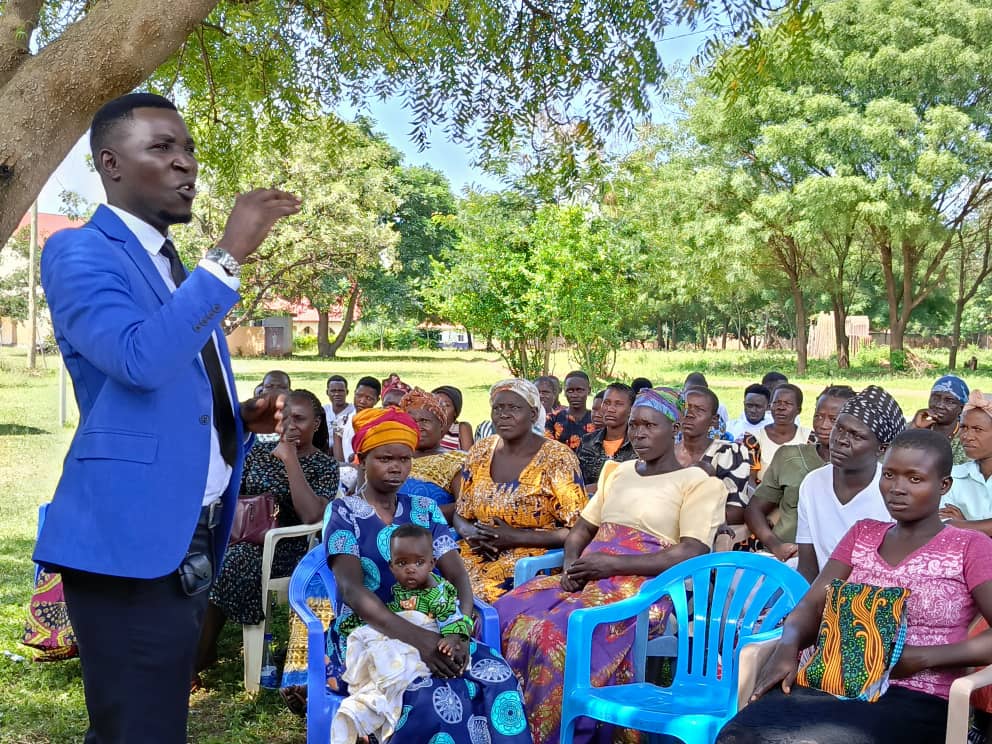
By Nathan Eyagu
KUMI - St. Stephen’s Child and Youth Development Centre in Kumi District has launched a new initiative centred on mindset change. Established in 2008, this project operates under the Church of Uganda through a partnership with Compassion International and has been instrumental in supporting vulnerable children and their caregivers.
However, a recent evaluation revealed a decline in active participation, prompting the centre’s management to seek innovative solutions.
Mrs Abala, the Director of the Centre, explained that the project was established with the primary goal of holistically ministering to families through one child. “The partnership between the Church and Compassion, under the Diocese of Kumi, has allowed us to provide essential services and support to families in need.
However, after reviewing our progress at the end of Financial Year 2024, it became evident that participation in our programmes was decreasing, particularly among the youth,” she said.
Historically, the centre’s approach involved providing caregivers with various handouts, including scholastic materials, mattresses, bedsheets, blankets, drums, food relief, and even citrus seedlings. These resources were meant to assist caregivers—many of whom are not the biological parents of the children—in meeting the basic needs of the families.
However, this well-intentioned strategy inadvertently fostered a dependency mindset. Many caregivers began to see the project as a primary provider, relying on it to meet their needs rather than actively participating in the programme’s broader objectives.
“Our intention was to help these families holistically, but we started noticing that their involvement was diminishing,” Mrs Abala noted. “The youth, who now make up 90% of our beneficiaries, were particularly disengaged. Their focus seemed to shift primarily to receiving school fees or medical care, and they were no longer as interested in the other developmental aspects of our programmes.”
Faced with this challenge, the centre’s management team convened in August 2024 to discuss potential solutions. It was during this meeting that the idea of inviting a motivational speaker was proposed.
The team had been following George William Okoit, CEO of Lu’ateker Concepts and Teso Textiles, on social media. Okoit’s compelling articles on mindset change, entrepreneurship, and community development had caught their attention, making him the ideal candidate to inspire and motivate the centre’s beneficiaries.
“We’ve been closely following Okoit’s work, and we believe his experiences and insights could ignite a new passion within our community,” Mrs Abala shared. “His journey of self-development and his dedication to empowering others resonate strongly with our goals. We are confident that his message will encourage our caregivers and youth to shift from a dependency mindset to one of self-reliance and active participation.”
Okoit’s motivational speech, delivered during a special session at the centre, focused on the urgent need for economic liberation within the Teso sub-region. He emphasised the importance of unity, forgiveness, and community cohesion as fundamental steps towards economic progress.
“For Teso to progress, we need to begin by fixing our communities,” Okoit stated. “We are so divided that it’s challenging to even sit in a meeting for more than an hour. I urge everyone to become champions of unity and forgiveness, as these are essential for our economic liberation.”
He further highlighted the critical role of job creation in addressing the region’s economic challenges. “There’s no shortcut to economic development. We must start by creating jobs within our communities. If you have an innovative idea or a scalable project, don’t hesitate to seek guidance and collaborate with others. The solutions to our problems are within us; we have the knowledge, the experience, and the opportunities. What’s stopping us is a lack of prioritisation.”
Okoit’s message resonated deeply with the audience, particularly the youth and caregivers who had grown accustomed to relying on external support. He challenged them to take ownership of their futures and to actively contribute to the economic development of their communities. “Nobody is going to create jobs for us.
That responsibility is ours. We must stop waiting for external help and start taking action ourselves. It is possible for Teso to progress, but it requires a collective effort,” Okoit concluded.
The centre plans to assess the impact of this initiative by December 2024. Mrs Abala expressed hope that by then, there would be a noticeable shift in the attitudes and participation levels of the beneficiaries.
“We expect that by December, when most of the youth have returned from school, we will see the fruits of Okoit’s motivational sessions. We intend to invite him again to evaluate the progress and reinforce the positive changes we hope to see,” she said.
This initiative marks a significant step in St. Stephen’s Kumi Centre’s ongoing efforts to empower its beneficiaries and foster sustainable development within the community. By shifting the focus from dependency to self-reliance and active engagement, the centre aims to create a more resilient and empowered community that can thrive independently.
The parents and caretakers of the project beneficiaries who attended the session applauded Okoit for his wisdom and advice, acknowledging the importance of his message in guiding the youth and caregivers towards a brighter, self-sustained future.
As the programme moves forward, the centre remains committed to its mission of holistic family ministry, with a renewed emphasis on mindset change and economic empowerment.
The success of this initiative could serve as a model for other communities facing similar challenges, demonstrating the power of local leadership and community-driven solutions in achieving long-term development goals.